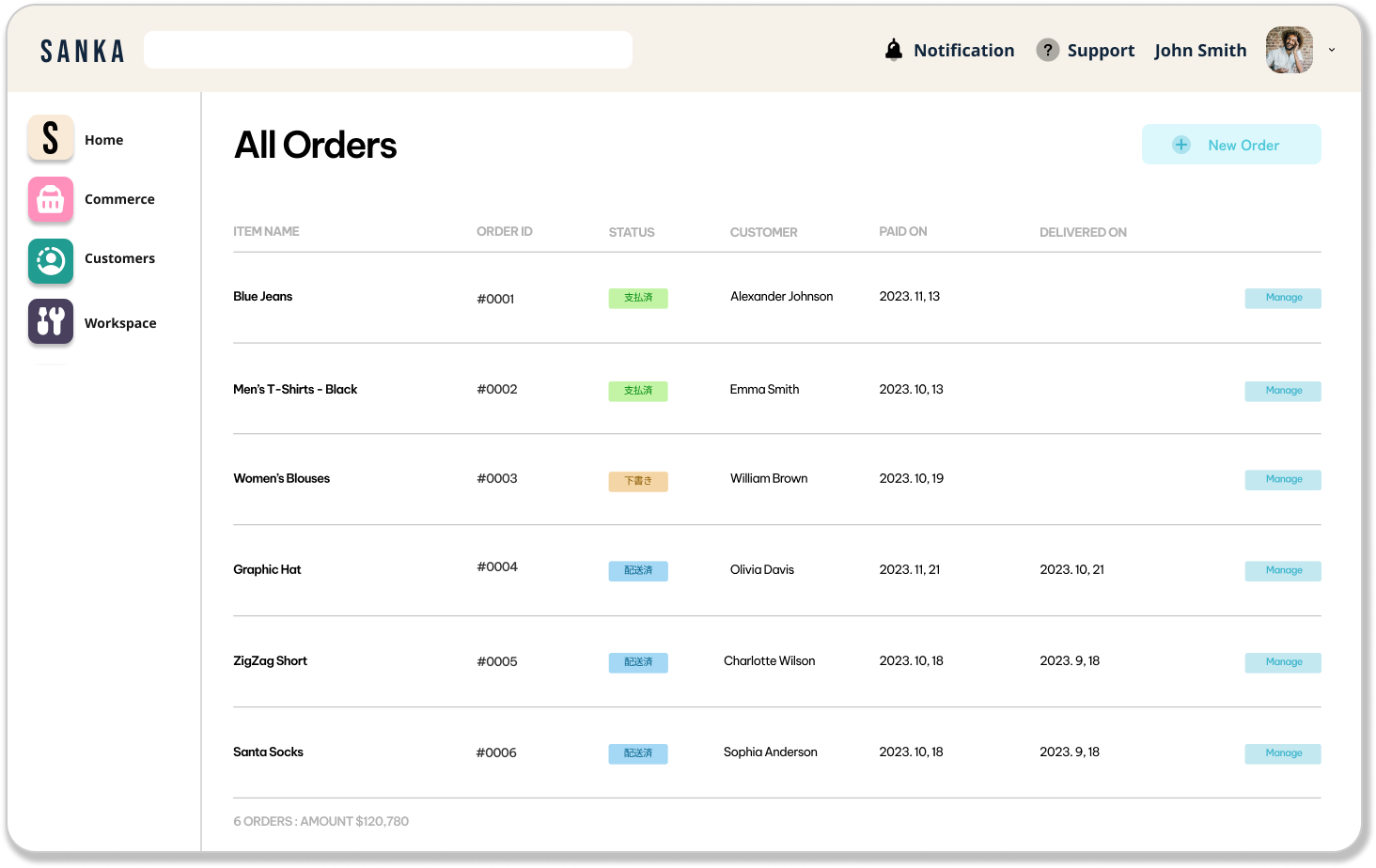Introduction
Automation has become a significant asset for small and medium-sized businesses (SMBs) seeking to save money, reduce errors, and enhance product quality.
Automating processes can reduce the amount of manual labor required for routine tasks, freeing up time for more creative and strategic work.
It can also increase the productivity of SMBs by reducing tedious duties and allowing employees to focus on higher-value tasks.
Human errors, which can result in costly blunders and wasted resources, are eliminated by automation.
In addition, it can assist SMBs in enhancing their consumer experience by delivering consistent, high-quality services.
In this blog post, we'll explore the benefits of automation for SMBS, the types of automation tools available, and how to implement automation in your business.
Benefits of Automation for Small Businesses
Automation Saves Money and Time
Automation helps SMBs cut costs and boost efficiency. Businesses can automate data entry, bookkeeping, and other administrative duties.
This frees up staff to work on more important tasks, such as customer support or product development.
Additionally, automated processes help minimize errors which can be costly for any business.
Automating complex processes allows for greater consistency in the quality of the products or services being provided.
Businesses can easily ensure that all steps of a process are completed correctly and are consistent with quality standards each time they run them automatically.
Automation Reduces Error and Improves Accuracy

Automation reduces errors, improving precision.
Automation gets rid of one of the main causes of mistakes that can cost a lot of money: human error.
Automation also cuts down on the time it takes to finish a job, since complex tasks can be programmed to run quickly.
This results in cost savings, since resources are allocated more efficiently and productivity increases.
Automation isn't just a way to save money; it's also a way to make your goods or services better. When processes are automated, they are more accurate, which leads to better product and customer satisfaction. Plus, they are usually faster and better at getting things done than people.
Automation Improves Consistency and Standardization
Small businesses can reap big rewards when they automate certain tasks and processes.
Automation helps companies by improving consistency and standardization of operations, providing better control over quality, and reducing the chance of human errors.
Automation helps to streamline operations and increase efficiency as businesses can scale without worrying about potential inconsistencies or faulty operations.
With automated processes, you can rest assured that standard procedures are followed so that the same quality service is delivered every single time.
Automated systems also allow businesses to quickly detect issues and implement corrective actions, preventing further mistakes or errors from occurring.
This lets businesses make sure there is more consistency, which leads to happier and more engaged customers and, in the end, more sales and better profits.
Automation Allows SMBs to Grow

Automation is a great way for small and medium-sized businesses (SMBs) to get the most out of their resources because it lets them grow quickly and efficiently.
Automated processes can be configured to adapt to changing customer needs and market conditions.
This allows SMBs to increase the number of tasks they can take on without the need for additional personnel, saving them both time and money.
By automating manual processes, SMBs can benefit from increased production throughput.
Automation can also help improve the quality of the final goods and cut down on mistakes that would cost more if they happened.
Automated processes also cut down on downtime, which helps SMBs finish projects faster and on time.
Lastly, automation is important for data security because it lowers the chance that mishandling or human mistakes will lead to data leaks or the wrong use of private information.
With automated systems in place, small and medium-sized businesses can be sure that their data is safe while they focus on building their business.
Automation Frees Up Employees to Focus on High-Value Work

As your business grows and expands, automation can provide much needed relief by taking on tedious or mundane tasks, freeing up your team of employees to focus on more high-value work.
This will give you a chance to answer problems, come up with new ideas, and take risks, all of which will help you get to the next level.
In addition to improved efficiency, automation can also help minimize errors due to human error.
Automation ensures processes are completed correctly and consistently each time, allowing your business to run more smoothly.
By reducing errors and optimizing processes, you'll be able to improve the quality of your products or services and maintain customer satisfaction.
Also, automation doesn't just free up workers to do more valuable work; it also saves money in the long run by cutting down on the labor costs of manual jobs and giving a better return on investment.
Automation can cut down on operational costs by streamlining processes and getting rid of steps that aren't needed.
This saves businesses time and money while still letting them offer great services or goods.
Additional Benefits of Business Process Automation
Business process automation saves money and cuts down on mistakes, but it does more than that.
It can also help small and medium-sized businesses improve the standard of the services they offer overall.
Automation lets you answer customer questions faster and ease the whole process of bringing a new customer on board.
Benefits of automation for SMBs include:
- Faster response time: Automated response systems can respond quickly to customer questions and solve problems more quickly, which makes customers happier. Automated processes also cut down on the time customers have to wait by automating the onboarding process so that staff can focus on other parts of the service.
- Better accuracy: Automation helps get rid of human errors in order processing, banking transactions, and data entry. This means there are fewer mistakes and more accurate information. This makes it easier to provide services of a higher standard and in less time.
- Better governance: Automated processes make it easier to follow internal policies and legal standards. This gives business operations more oversight, which leads to better governance and more openness.
Types of Automation Tools for Small Businesses

There are many different types of automation tools available for small businesses. Here are some of the most popular:
- Chatbots: Chatbots can provide 24/7 customer support, answer frequently asked questions, and even help customers place orders.
- Email marketing automation: Email marketing automation tools allow you to send personalized emails to your customers at the optimal moment, thereby boosting customer engagement and sales.
- Social media scheduling tools: Social media scheduling tools allow you to plan and schedule your social media postings in advance, saving time and ensuring consistency.
- Online appointment scheduling: Online appointment scheduling can help you manage your schedule more effectively and decrease no-shows.
There are numerous other automation tools available, depending on the requirements of your business.
To derive the maximum benefit from automation, it is essential to choose the appropriate instruments for your business.
How to Implement Automation in Your Small Business
Small-business automation implementation is easier than you might imagine. Here are some methods to get started:
- Identify which tasks to automate: Make a list of the tasks that take up the most time or are the most repetitive. These are the tasks that are best suited for automation.
- Choose the right tools: Research automation tools that are best suited for your business's needs. Look for tools that are easy to use and integrate with your existing systems.
- Train your employees: Once you've chosen your tools, train your employees on how to use them. This will help ensure that everyone is on the same page and using the tools effectively.
- Measure the results: Keep track of how much time you're saving and how much more productive your business is after implementing automation. This will help you identify areas where you can continue to improve.
Conclusion
In conclusion, automation has multiple benefits for small business owners.
Automation can help businesses save money, reduce errors, and ultimately enhance the quality of their goods and services.
Automation also enables businesses to be more efficient, streamline processes, and prioritize other business-critical tasks.
Automating processes can aid small businesses in remaining competitive and prosperous over time.
With automation, businesses can move away from manual processes and concentrate on duties that require greater creativity and inventiveness.
Automation can help SMBs become more productive, reduce expenses, and improve customer service.








